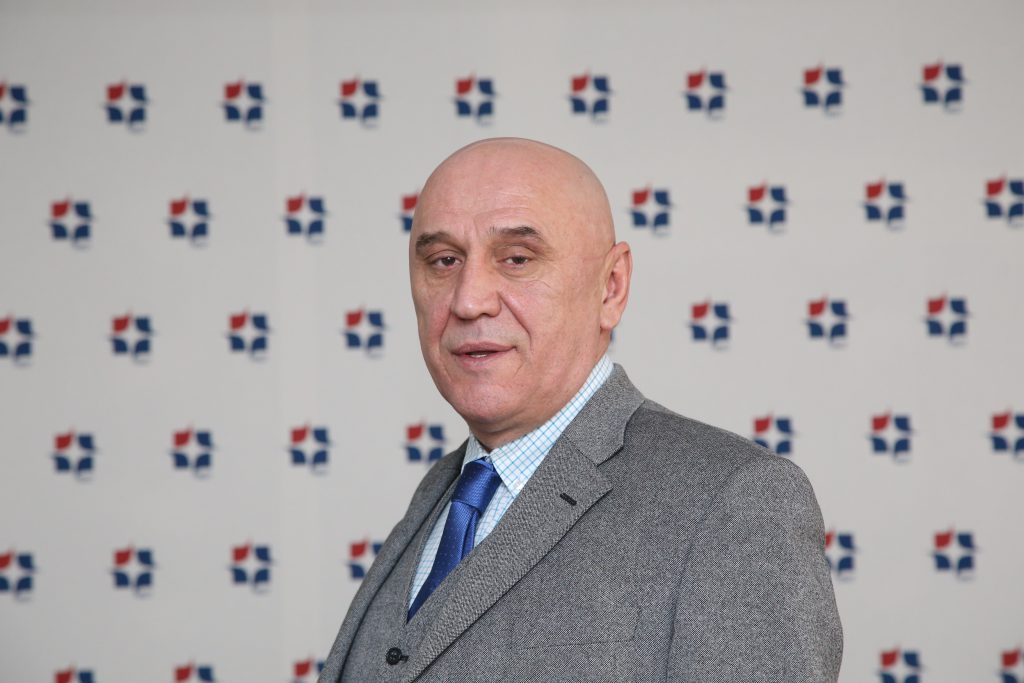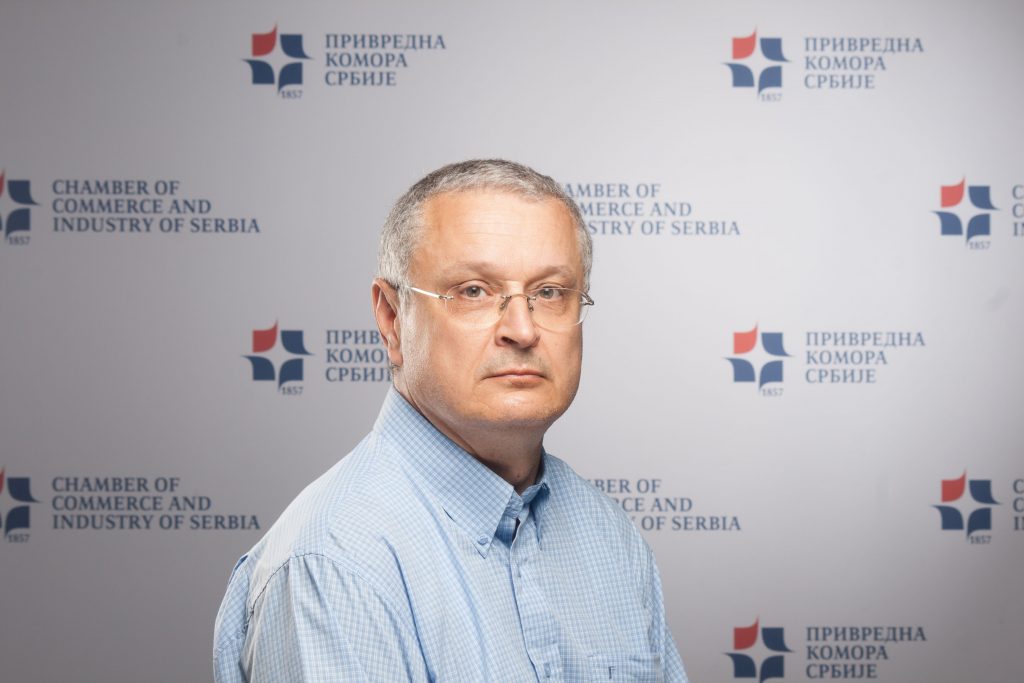The proposed legal framework for the mining and geological research sector will improve the operations of companies in the energy sector
Earlier this year, the state authorities announced major reforms in mining and energy, while the adoption of 4 new laws is in progress. We talked with experts from the Chamber of Commerce and Industry of Serbia (Energy and Mining Association), energy advisor to the President of the Chamber, Miroslav Lutovac, Association’s Secretary-General, Petko Šišović and senior advisor in the Association, Dr. Miroslav Ignjatović about the effect of these changes on the economy and improving the mining and energy sectors in Serbia.

What needs to change in the mining and energy sector for the sector to improve?
Lutovac: Given the need to build new mining capacities and revitalize the existing ones, as well as the fact that production and consumption improve the country’s economic balance, it is important to increase productivity, efficiency and safety. The proposed legal framework in the mining and geological research sector will facilitate better operations of the companies in the energy sector, boost employment and create the prerequisites for a wide range of positive effects.
To best achieve these effects, we need to control the implementation of regulations, primarily through carrying out inspections during the execution of mining works. Also, strict implementation of terms and conditions of tenders is required. The state authorities, companies and experts want to see relevant laws drafted and to properly define a coexistent, valid and realistically applicable platform for mining and geological research activities that should ensure sustainable management of mineral resources based on solutions acceptable to all stakeholders.
For the development and construction of new RES to gain real momentum, subsidies (min. 20%) are required
Four new energy and mining laws should be passed soon. How will they affect businesses?
Lutovac: The Law on Energy Efficiency and Rational Use of Energy and the Law on Renewable Energy Sources are of the greatest importance for the business community.
We expect that the Law on Energy Efficiency will help to improve the overall efficiency of the economy and its competitiveness, through the establishment of a sustainable mechanism for financing energy efficiency. The Directorate for Funding Energy Efficiency Incentives is in the process of being established. It will deal with the allocation of energy efficiency incentives and will monitor the implementation of projects and generated savings, as well as provide information on funding opportunities for energy efficiency improvements.
In terms of the Law on Renewable Energy Sources, which is being passed for the first time, the most important thing for businesspeople is the opportunity to engage in the production of electricity through a simplified procedure. The law introduces the concept of PRO-BUYER (natural or legal person who produces energy for their own needs), which allows companies to produce electricity, despite that not being their core business activity. The law also removes obstacles to achieving a balance in producing energy (the supplier, with whom the businessperson has concluded a contract, is obligated to acquire electricity surpluses and at the same time, provide the missing quantity of energy when needed). Businesses who choose this option will have a stable price of electricity for a longer period (it is estimated that the lifespan of such a solar power plant is between 20 and 25 years) and ensure predictability in their business, at least when it comes to the price of electricity consumed. Without any additional incentives, while bearing in mind the costs of the investment itself and the current price of electricity, the payback period is 8 years.
The Law on Renewable Energy Sources allows businesses to engage in electricity production
In addition to this category of electricity producers (producing for own needs), the law also prescribes the possibility of stimulation for electricity production for the electricity market through the FEED-IN tariff modality (for production capacities below 500 KW) and the market premium system. These two modalities are primarily intended for those businesses whose main activity is related to the electricity market (producers, traders, suppliers…), but there are no obstacles for other kinds of businesses to join these programmes. However, they need to meet certain administrative prerequisites (registration, permits, licenses …) but also be aware that this is a new, rather complex, business activity.
For the development and construction of new RES to gain real momentum, it would be necessary to determine certain financial resources in the form of subsidies (min. 20%). This would lower the payback period to 5 to 6 years, which would be acceptable for most businesses, i.e. potential investors. Without additional incentives, the available funds of businesses would probably be directed to other projects with a higher rate of return.

Which initiatives and results of the Association for Energy and Mining Energy would you especially like to single out which have contributed to the development of this sector in Serbia?
Šišović: The Law on Amendments to the Law on Value Added Tax has been adopted following the group’s initiative under the Chamber’s auspices to reduce VAT from 20 to 10% for pellets and briquettes, as well as other biomass products obtained by agglomeration of sawdust, chips and other residues. These changes enabled further growth of the pellet and briquette market in Serbia, reduction of the shadow economy and had a positive impact on the environment.
A set of proposals was forwarded to the Government in order to adopt effective measures as a response of the Serbian energy sector to air pollution in urban areas. The set contained 12 proposals, most of which were adopted. Enabling the purchase of highly efficient combustion devices with a lower VAT rate and subsidies, the formation of an independent budget fund for energy efficiency in all sectors, prescribing the obligation of “green” public procurement, as well as the proposal to declare 2021 the year environmental protection in Serbia will accomplish quick results.
Other initiatives have been adopted too that contribute to maintaining liquidity during the economic crisis, such as the initiative of the Renewable Energy Group to extend payment terms for delivered raw materials by public companies. The request to reduce the price of the wood used for energy purposes was welcome by public forest management companies.

How can we boost the energy efficiency of our industry and increase the share of renewable energy sources in final energy consumption?
Ignjatović: The Chamber of Commerce and Industry of Serbia (CCIS) also contributes to the improvement of energy efficiency through training programmes for energy efficiency and energy managers, such as the EUREMnext project.
Regarding renewable energy sources, the results can be presented through an overview of project implementation – in terms of the energy concept in the RES segment, four companies decided to build a rooftop solar power plant for their own needs, one company for biogas cogeneration of 250kW capacity while others applied energy measures efficiency.
The Chamber of Commerce and Industry of Serbia’s Energy and Mining Association, as a subdomain of the CCIS website, has launched the Green Energy web portal, which provides information on renewable energy sources and energy efficiency. We expect that the portal will contribute to building and raising capacity in the field of renewable energy sources and energy efficiency, improve competition and connect participants in the biomass market – investors, project design companies, contractors, equipment distributors, banks, government and the civil sector. Companies and small businesses that operate in this area can also advertise themselves on the portal.

Also, the Chamber’s expert teams are participating in the drafting of the law while public hearings were held in cooperation with the line ministry.
The Law on Energy Efficiency and Rational Use of Energy envisages the establishment of Public Records of Energy Service Providers – ESCO companies, which will be managed by the Chamber of Commerce and Industry of Serbia based on the entrusted public authority. The creation of this database aims to make information on energy service providers publicly available, together with references that energy service providers will get from service users in the case where the provision of a particular public service has been completed. Registration is on a voluntary basis. Submission of requests will be digitized which is yet another service that the CCIS provides.